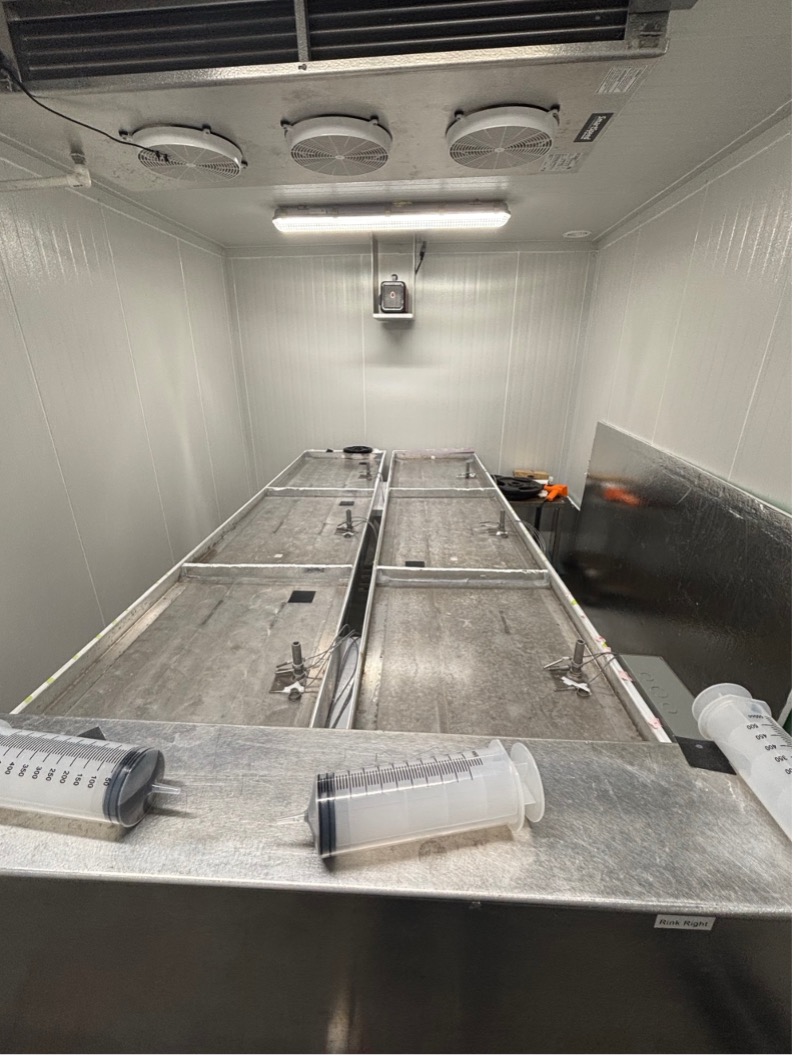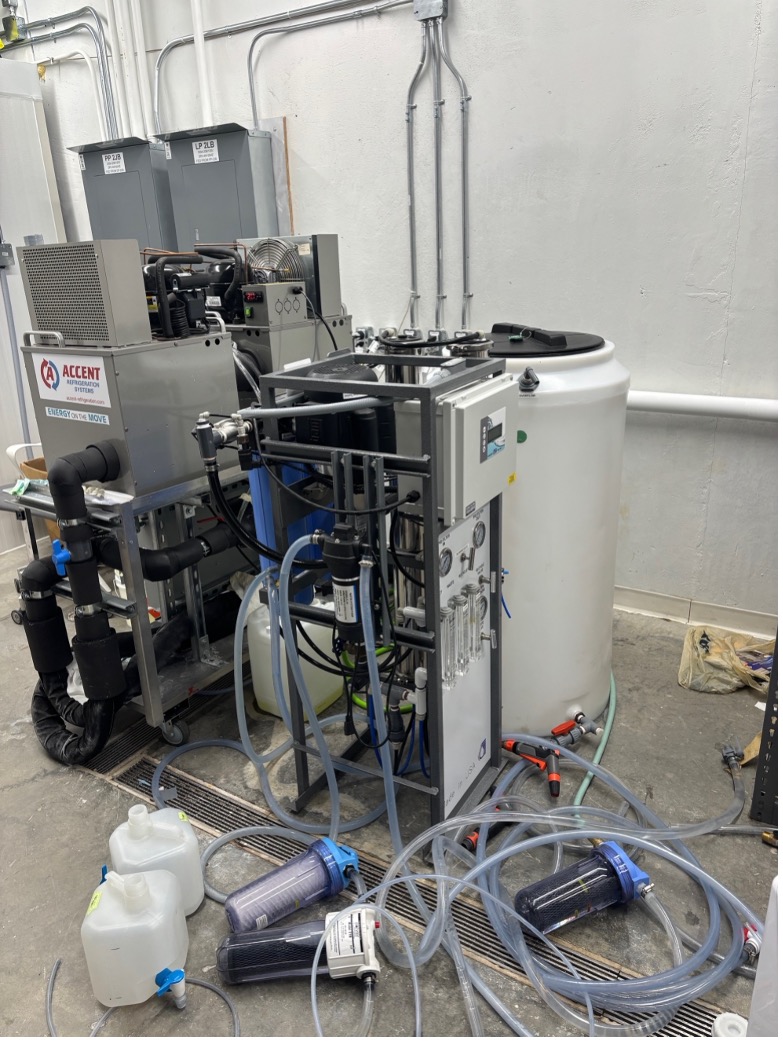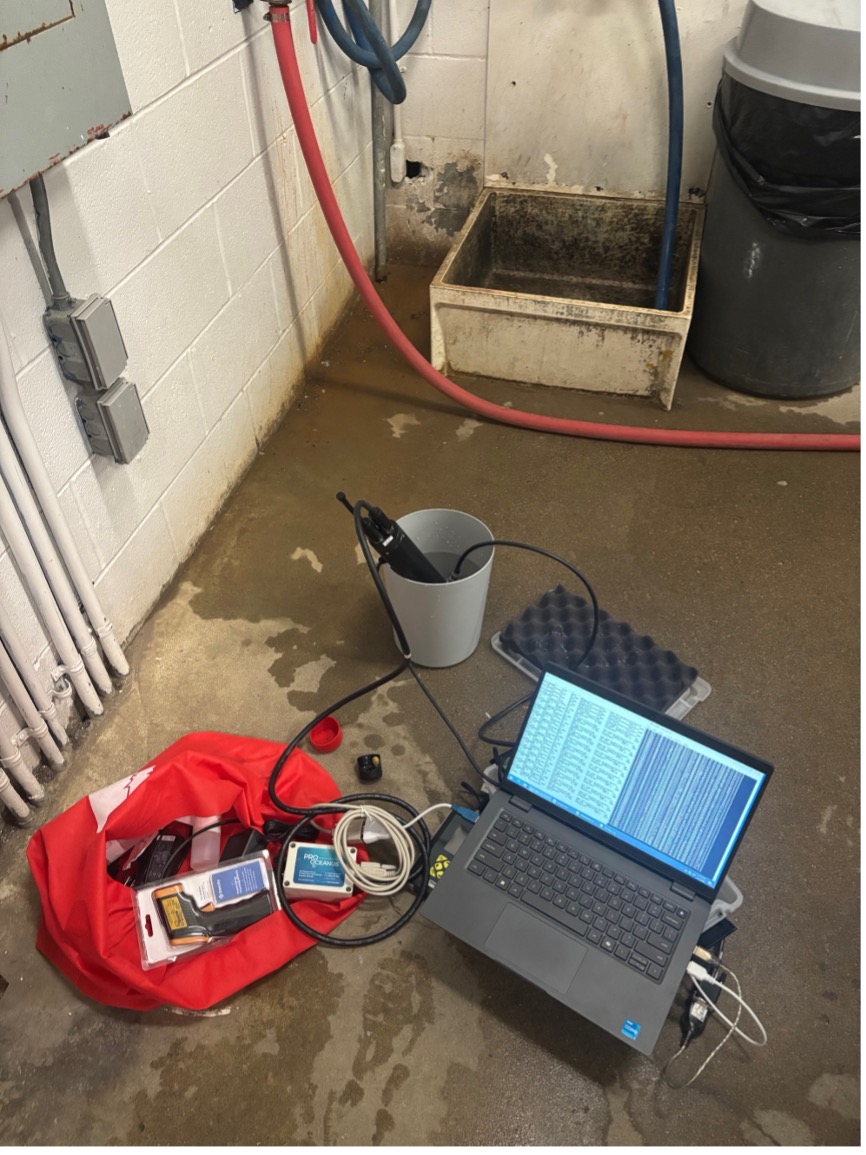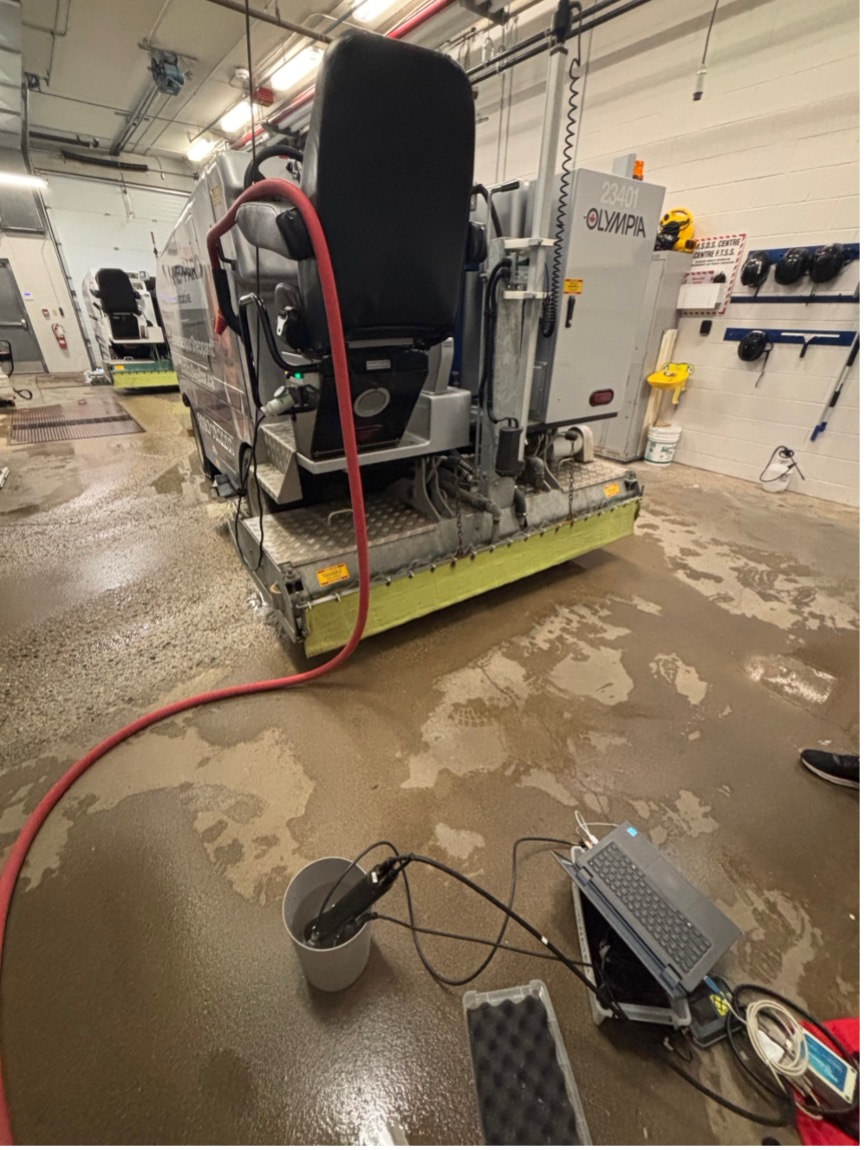September 6, 2025
Exploring Dissolved Gases in Ice Quality for Rinks
Pro-Oceanus recently visited the Toronto Metropolitan University to discuss dissolved gases with Dr. Ryan Hutchins, Research Associate working in the team of Jet Ice Research Chair and Associate Professor of Chemistry and Biology, Dr. Stefania Impellizzeri.
The research team has been exploring various water properties and how they affect ice quality, with the goal of improving ice conditions for a range of sports, from hockey to curling. Their lab has been studying ice hardness under varying conditions of temperature (both water and ice), total dissolved solids, and most recently total dissolved gas and CO2 levels, an area of study that Pro-Oceanus has been providing equipment to researchers since 1998, just not specifically for ice quality, so this was a new and exciting challenge we wanted to get a first hand look at.
The Jet Ice Miniature Ice Rink Experimental Lab features six identical ice-making mini rinks that can be configured to create a unique testing facility for how varying water quality affects ice strength and consistency.


Figure 1. The Jet Ice Miniature Ice Rink Lab. Figure 2. Water quality control system for the Mini Rink Lab.
Recently, they have been measuring dissolved gases in the water used in ice resurfacing machines at rinks. Elevated dissolved gases can lead to ice quality issues, including reduced strength and clarity. It is commonly assumed that using heated water reduces the risk that gas-supersaturated water will freeze with microbubbles, but this has not been measured to confirm that this is indeed the case. To address this, Dr. Hutchins has been measuring the water added to ice resurfacing machines at ice rinks to determine the gas saturation levels, including CO2, O2, and N2.
A second factor in the use of warm and hot water in ice resurfacing is known as the Mpemba effect, where it has been observed most frequently that warmer water will freeze more quickly than cooler water. There is considerable uncertainty in this effect, as studies have shown inconsistent results, in part due to incomplete measurement of water quality parameters in experiments attempting to replicate it.


Figures 3 and 4. Measuring dissolved CO2 levels in ice resurfacing water using the Pro-Oceanus Mini CO2 sensor at the Hespeler Memorial Arena in Cambridge, Ontario.
The cost of heating water for ice rink resurfacing is considerable, and a better understanding of each rink’s unique water quality could determine whether heated water is beneficial to the overall ice quality. This is a driving force behind the critical work being undertaken by Dr. Impellizzeri and her group at the Toronto Metropolitan University in collaboration with Jet Ice.
If you would like more information on the group’s previous work on total dissolved solids and their impact, please check it out HERE.